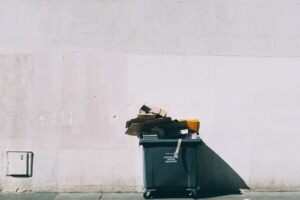Recycling supply chain must play part in preventing illegal waste exports
The board of The Recycling Association recently received intelligence that, what can only be described as an underground network, was sending sub-standard materials with 20% out-throw to countries such as India.
In short, this was illegal activity.
At The Recycling Association, we are determined to fight against this sort of illegal activity and it is in the interests of our members to do so.
We are working hard to crack down on this, and we are communicating with the regulatory authorities here, and in the export market final destinations, to protect the interests of legitimate recycling export businesses.
But we have a problem.
And that problem is that it isn’t clear what level of contamination is allowed to be exported, and the UK regulators such as the Environment Agency in England and the Scottish Environment Protection Agency (SEPA) have not given clear guidance.
In every bale of paper or plastics that is to be exported, often to the largest market China on the returning ships that brought our manufactured goods here (often in the cardboard boxes or plastic film we are sending back), there will be inevitably a level of out-throw.
The way that recyclable material is collected can never be perfect, and items such as cans, bottles or other non-target materials will be sorted into a bale of cardboard for example.
Some materials such as sanitary waste, nappies and incontinence pads are treated as hazardous waste and it is illegal to export these, and rightly so. These should be removed at the sorting process or ideally the consumer should be educated that they should never place these in their recycling containers.
But the life of the exporter is made difficult without clear guidance on what level of legal contamination is allowed before it becomes considered illegal.
At The Recycling Association we want to see a 1.5% maximum contamination level introduced for UK exports, which is the level allowed by the Chinese authorities when we export there. For paper, we also want to see the introduction of the EN643 standard, which guides the contamination levels of paper trade in Europe and elsewhere.
To meet these targets would be challenging, but the whole supply chain needs to focus on meeting them from local authorities, retailers, waste management companies who are collecting and sorting the material, to domestic recyclers, exporters and even shipping lines.
In fact, every one of these has a requirement, as part of the supply chain, to ensure that material sent for export is legally acceptable, no matter how vague the guidance is.
SEPA recently introduced its new One Planet Prosperity – Our Regulatory Strategy, and it promised to focus on waste crime through partnership working with other enforcement agencies to disrupt organise crime. Of course, The Recycling Association welcomes this.
But it is important that we distinguish between serious organised waste crime and less significant and inadvertent breaches of waste shipment regulations.
This is where the UK enforcement agencies must work together with The Recycling Association and our members to help us understand our statutory obligations in an industry that is a credit to the UK.
We should not be labelled as criminals. And neither should those in the supply chain listed above, who are potentially liable too for these inadvertent breaches.
Until we have clear regulation, everyone in this chain is at risk.
Photo by clurr 












